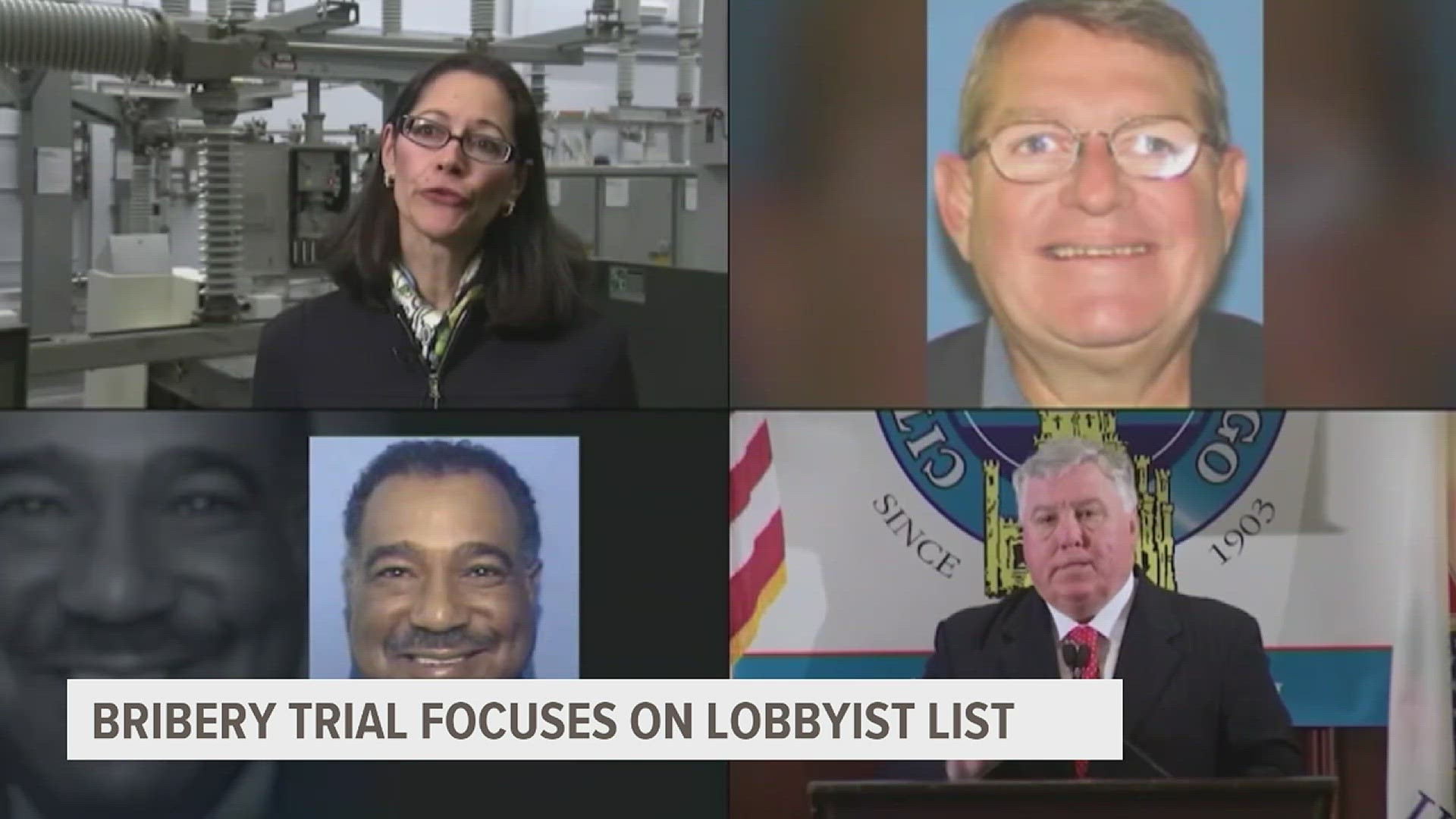CHICAGO — It was sunny and approaching 75 degrees when FBI agents arrived at the Quincy home of Mike McClain on a Tuesday in May 2019.
McClain, a close friend of longtime Illinois House Speaker Michael Madigan, had a habit of printing out emails and keeping hand-written notes. That made the agents’ job a bit easier as they searched McClain’s first-floor home office, another office area in the basement featuring a wall of filing cabinets and his Toyota Avalon in the garage.
From his car, the agents seized McClain’s iPhone, a MacBook Pro and two tote bags filled with yet more printed emails and notes.
Nearly four years later in a federal courtroom, McClain saw those items again on Tuesday as one of the FBI agents involved in the raid held them up for the jury to see.
McClain, along with two other ex-lobbyists of electric utility Commonwealth Edison and its former CEO, are on trial for allegedly orchestrating a yearslong scheme to bribe the powerful House speaker in exchange for legislative wins in Springfield. The defendants say ComEd awarded jobs and contracts like the ones given to Madigan allies as a favor to many powerful politicians, and the utility spent millions on legitimate lobbying to pass its legislative priorities.
The documents shown to the jury included several iterations of the same list of names, handwritten in McClain’s all-caps scrawl on stationary from the Talbott Hotel in Chicago’s Gold Coast neighborhood. Some of the versions included a sort of rating system, with plus signs next to a few of the names.
McClain didn’t leave the feds guessing about what the lists were, because in that same black tote bag bearing “MMF” – a monogram for Michael F. McClain – was a printout of an email he’d sent in December 2018, with the subject line “Magic Lobbying List.”
“A Friend of ours and myself have gone through the ‘magic list’ and frankly culled quite a few names from the list,” McClain wrote to the bcc’d recipients of the email, employing his common euphemism of “our friend” when referring to Madigan.
One of the versions of the list also bore the speaker’s distinctive cursive script, adding names and phone numbers to the collection – and crossing one of his additions out.
McClain’s email continued with a request of those on the “magic list” – prominent statehouse lobbyists, including some who’d spent years working in Madigan’s office and others who’d served in the General Assembly.
“So, I would ask what has been asked in the past,” McClain’s email continued. “If you have a potential client come up to you and seek you as a lobbyist but you cannot for whatever reason (accept the work), please...try to get him or her to consider a recommendation from you.”
That recommendation, McClain implied, would really be coming from McClain and Madigan.
Tuesday wasn’t the first day the jury heard mention of the so-called magic list; it was mentioned in three wiretapped phone calls played earlier in the trial, and one of the lobbyists on the list testified to its existence last month.
“As best as I know, it was a list of individuals who had been helpful to the speaker and speaker’s office over time,” Will Cousineau, Madigan’s longtime political director said during his testimony, adding that McClain would use the list to dole out work on certain projects.
McClain’s attorney, Patrick Cotter, sought to downplay the mythic language of the “magic list” when Cousineau was on the stand.
“Mike tends to talk a little bit like that sometimes, doesn’t he?” he asked. “Was it weird to you in politics that people would keep track of who helped them?”
Cousineau, who has spent more than two decades in Illinois politics and government, confirmed that it was not.
“So the magic list is just normal politics with a name Mike put on it,” Cotter offered.
A little over five months after McClain’s email, FBI agents raided his home and those of two others on the magic list: Shaw Decremer and former Chicago Alderman Mike Zalewski. Neither has been charged with wrongdoing.
Zalewski was one of several Madigan allies that prosecutors allege did little to no work in exchange for monthly stipends as contract lobbyists for ComEd under Jay Doherty, a codefendant in the case. Other subcontractors – including Ed Moody and former state Rep. Eddie Acevedo – were moved to and from Doherty’s contract over a period of nine years. Moody and Acevedo had, for a time, been paid through Decremer’s lobbying contract with ComEd.
On the afternoon of May 14, 2019, agents also raided Doherty’s office, along with homes associated with Moody and another subcontractor, Ray Nice – two top precinct captains for Madigan’s 13th Ward Democratic Organization. Neither has been charged with wrongdoing.
Agents associated with those searches testified Tuesday that they could find no evidence in the papers and electronics collected that Moody, Nice, Zalewski or former 13th Ward Alderman Frank Olivo had done any lobbying work for ComEd during the years they collectively were paid $1.3 million from direct contract lobbyists for the utility.
The trial continues at 10 a.m. on Thursday.
Capitol News Illinois is a nonprofit, nonpartisan news service covering state government. It is distributed to more than 400 newspapers statewide, as well as hundreds of radio and TV stations. It is funded primarily by the Illinois Press Foundation and the Robert R. McCormick Foundation.
Watch more news, weather and sports on News 8's YouTube channel

